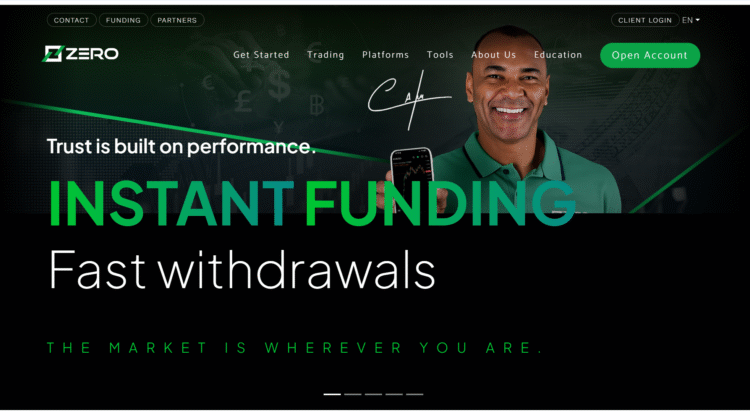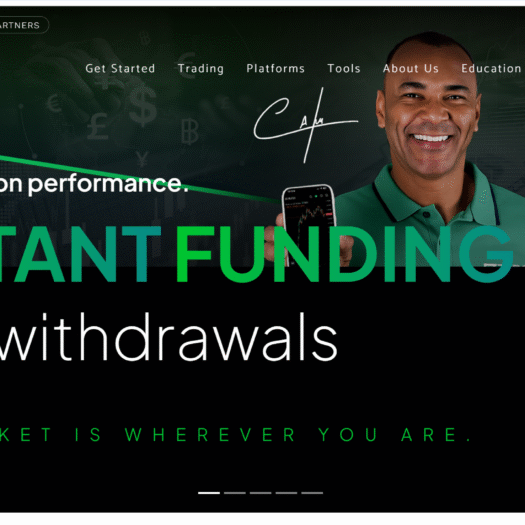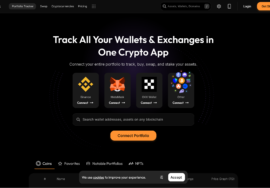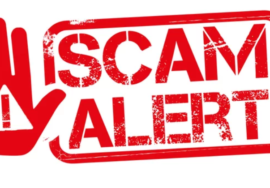
7 Strengths & Warning Signs: zeromarkets Deep Dive
7 Strengths & Warning Signs: zeromarkets Deep Dive

Zero Markets (often styled as “ZERO Markets”) is a forex/CFD broker that’s been operating for several years. It offers trading via popular platforms, supports multiple jurisdictions through different legal entities, provides a variety of account types, and advertises competitive pricing. For traders comparing brokers, Zero Markets might look appealing. But a closer look reveals both solid features and meaningful risks. Below are seven key strengths and warning signs.
1) Regulation & Multiple Legal Entities (Strength + Nuance)
One of Zero Markets’ major advantages is that it operates under several legal entities, each of them regulated in different jurisdictions:
- Zero Markets (NZ) Limited is regulated by the Financial Markets Authority (FMA) in New Zealand (license FSP 569807).
- Zero Financial Ltd is an Investment Dealer regulated by the Financial Services Commission (FSC) of Mauritius (License No. GB21026308).
- Zero Markets LLC is registered in St. Vincent & the Grenadines (registration number 503 LLC 2020).
This structure gives the broker flexibility and allows clients in several countries to use an entity that is locally compliant. Also, they claim that client funds are held in segregated accounts with top-tier banks under the regulated entities, which is good for fund safety. (Source: Zero Markets Regulation & Client Funds page; Legal Documentation)
However, having regulation in Mauritius or SVG is significantly weaker in investor protection than regulation under top-tier authorities (such as FCA UK, ASIC Australia, CySEC EU). Also, in some entities, Zero Markets’ regulatory coverage is limited to certain products or client categories. Traders must check which entity their account will be opened under and what protections that entity actually affords. (Source: Zero Markets Legal Documentation; TradingFinder review)
2) Competitive Pricing, Spreads & Account Types (Strength)
Zero Markets advertises some accounts with “Super Zero” or “Raw” style spreads, including very tight spreads on major pairs. They offer several account types (Standard, Super Zero, Islamic/Roll-over free) and promote commission-based or commission-free options depending on account. (Source: TradersUnion review; Zero Markets Account Types page)
There are also reports from users that spreads and swap rates are relatively low, especially under favorable market conditions. The broker claims “zero or minimal fees” for certain funding or withdrawal methods (though terms apply). (Source: Investing.com; Zero Markets Legal Documentation)
3) Platform & Tradable Asset Breadth (Strength)
Zero Markets supports MT4 and MT5 platforms, along with other trader tools (e.g. Autochartist, economic calendar, VPS options in some cases). They offer trading across multiple asset classes: forex pairs, commodities, indices, shares CFDs, and more. These are standard expectations, but Zero Markets seems to deliver in this area. (Source: ForexPeaceArmy; Zero Markets product pages)
Also, they offer “Islamic” account types for clients who need swap-free trading, which is often a plus for certain customer segments. (Source: Zero Markets Account Types)
4) User Feedback: Generally Positive, but Some Complaints (Mixed)
In user reviews and third-party broker rating sites:
- Many users report good experiences: fast deposit and withdrawal (especially for smaller amounts), responsive customer support, clean interface, decent execution. (Source: ForexPeaceArmy; Trustpilot reviews)
- On the other hand, there are frequent complaints regarding delays with withdrawals, especially for profit, or when using certain withdrawal methods. Some users say the verification or “due diligence” process becomes more cumbersome just when profits have accrued. (Source: WikiFX complaints; BrokerChooser)
Customer support is generally praised for being helpful, but there are occasional reports of slow responses or inconsistent quality depending on region. (Source: Wikifx risk assessment; Zero Markets reviews)
5) Transparency of Legal Documents & Restricted Jurisdictions (Strength + Warning)
Zero Markets publishes legal documentation clearly, with terms & conditions, risk warnings, details of regulated entities, and what regions are excluded from service. They explicitly list jurisdictions where their services are not offered. This kind of clarity is a positive sign. (Source: Zero Markets Legal Documentation)
However, “excluded jurisdictions” lists can indicate where the regulatory or legal risk is recognized by the company. Knowing that your country is on that list is important. Also, legal disclaimers note that derivative products are leveraged and may not be suitable for all investors. Moreover, certain offers (like fee-free funding, or minimal spreads) are subject to conditions in fine print (e.g. required verification, or minimum deposit amounts). (Source: terms & legal docs)
6) Withdrawal Terms & Common Issues (Warning)
Although many users report smooth withdrawals, there are recurring patterns in complaints:
- Delays in withdrawal processing times, especially for larger sums or through particular payment methods. (Source: WikiFX; user reports)
- Additional verification requests even after initial KYC—especially when profit is involved or when payment methods differ from the deposit method. (Source: FXRanking withdrawals guide)
- Occasional fees being applied by payment providers or withdrawal methods (e.g. e-wallets). Even if the broker claims no fee, external transaction fees or intermediary bank fees may still apply. (Source: WikiFX; Zero Markets FAQ pages)
These issues are not unique to Zero Markets, but they are material, especially if you expect predictable access to your profit.
7) Risk Level vs. Reputation Score (Balanced Signal)
Zero Markets’ safety or reputation ratings on brokers’ aggregation platforms are generally above average. For instance, TradersUnion gives it a fairly high “safety score,” and many users give high ratings on Trustpilot. (Source: TradersUnion; Trustpilot)
But reputational metrics also note that because regulation is not uniformly top-tier across all entities, and because some jurisdictions do not provide guarantees on investor compensation, the overall risk remains moderate. Also, some aggregators (WikiFX) mark “high potential risk” due to complaints. (Source: WikiFX broker profile)
Conclusion: Final Verdict on Zero Markets
When all evidence is considered, Zero Markets appears to be a legitimate broker with many professional features. It offers multiple regulated entities, claims segregated client funds, provides multiple asset classes and account types, and many users report positive experiences with trading execution and customer support. For traders in regions supported by its stronger regulated entities (e.g. New Zealand FMA, Australia ASIC, Mauritius FSC), Zero Markets offers a reasonable balance of cost, platform quality, and accessibility.
However, “reasonable” does not mean risk-free. The regulation under some entities (Mauritius, SVG) is weaker in terms of enforcement, compensation schemes, and investor protection. For high stakes or large profits, the difference in legal protection among entities could be critical. If you open under a weaker entity, your remedies in cases of dispute will be limited.
Withdrawal reliability is one of the more common pain points. Even with brokers that are well-intentioned and generally compliant, delays and verification friction tend to increase with the amount or when deposits and withdrawal rails differ. If your profitable withdrawal depends on payment method, region, or verification status, expect some risk. Best practice is to test with small amounts first to see how the flow works in your specific circumstance.
Cost transparency is reasonably good, but some fees (or spread widening under stress) or external fees (payment provider, conversion, etc.) may erode the advertised “low-cost” advantage. If your strategy is sensitive to spreads, commissions, or latency, you should model your real trading conditions (e.g. in volatile market sessions) rather than rely only on the “best case” marketing specs.
In terms of support and trust, Zero Markets gets good scores, but mixed complaints (mostly over support delays or inconsistencies, or withdrawal follow-ups) mean that you cannot treat high review scores as proof of infallibility. Your own experience may differ, especially in less served jurisdictions.
If I were advising someone considering using Zero Markets, here’s what I would suggest:
- Determine which legal entity you will be under (Mauritius, NZ, Australia, SVG, etc.), and confirm that via your account/setup.
- Deposit a small starter amount; make some trades; then attempt a withdrawal (profit + principal) to test the whole chain.
- Always complete full identification / verification early, and use payment methods with possible dispute resolution where available.
- Keep all evidence: deposit slips, terms pages at the time you signed up, spread snapshots.
- Be careful with promotions or bonus-type offers: value them against the conditions and verify what “zero fees” covers in your case.










Offering many asset classes, account types, platform options and promotional benefits. Some users praise its service, while others raise serious complaints. Below are seven strengths balanced with warning signals to help you assess whether it’s safe (or risky) for you.
RECLAIM NOW